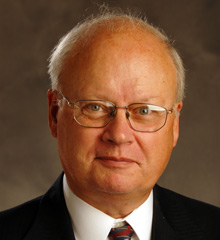Theological Themes in 1 Timothy
Revised by Mary Hinkle Shore, 10/23
Christ
Four major christological titles appear in the Pastoral EpistlesThe Pastoral Epistles are the New Testament letters of 1 and 2 Timothy and Titus. They are described as pastoral because they are addressed to individual persons rather than churches; they deal with matters of leadership and church governance. More: “Christ,” “Lord,” “Savior,” and “Mediator.” The title “Son of God,” used often in the seven undisputed letters of PaulThe Apostle Paul, originally known as Saul of Tarsus, was the author of several New Testament letters and the founder of many Christian communities. More, does not appear. Among the Pastoral Epistles, the term “mediator” appears as a christological title only in 1 TimothyThe companion on Paul’s later journeys for whom two pastoral epistles are named. More 2:5. It refers not so much to Christ’s nature as to his function in giving himself as a “ransom” for the salvationSalvation can mean saved from something (deliverance) or for something (redemption). Paul preached that salvation comes through the death of Christ on the cross which redeemed sinners from death and for a grace-filled life. More of humanity. There is an implicit affirmation of Christ’s preexistence and incarnationIncarnation literally means “embodied in flesh.” It is a Christian doctrine, based on the witness in John’s Gospel, that God’s Word was made flesh in the person of Jesus Christ. The Apostles’ and Nicene Creeds confess the central importance of the incarnation of Jesus. More (1 Timothy 3:16; see also 2 Timothy 1:9-10; Titus 2:11), his true humanity is maintained (1 Timothy 2:5; 6:13; see also 2 Timothy 2:8), and his death is acknowledged (1 Timothy 2:6; see also 2 Timothy 2:11; Titus 2:14). He has been exalted to heaven and reigns in the present era (1 Timothy 3:16; see also 2 Timothy 1:10; 2:12). Finally, he will appear at the end of time (1 Timothy 6:14; see also 2 Timothy 4:8), when he will judge both the living and the dead (see 2 Timothy 1:18; 4:1, 8).
Ethics
While there are special expectations for office holders in the church, there are general ethical teachings that apply to all believers. These include good works in general (1 Timothy 2:10; see also 2 Timothy 2:21; 3:17; Titus 3:1), moderation (1 Timothy 6:8), generosity (6:17-18), and care of the elderly (5:4). The love of wealth is to be avoided (6:9-10; see also 2 Timothy 3:2).
God and creationCreation, in biblical terms, is the universe as we know or perceive it. Genesis says that in the beginning God created the heavens and the earth. In the book of Revelation (which speaks of end times) the author declares that God created all things and… More
The author affirms that God the Father is one, and that God has not only created all things but has created them good (1:2; 2:5; 4:3-4; see also 2 Timothy 1:2; Titus 1:4-5), that God “gives life to all things” (1 Timothy 6:13) and “richly provides us with everything for our enjoyment” (6:17). Stress is placed on the goodness of marriage and having children (1 Timothy 3:2-5; 5:10, 14; see also Titus 2:4) and the legitimacy of secular authority (1 Timothy 2:1-2; see also Titus 3:1-2).
“The Faith” distinguished from “Faith”
Of all New Testament letters, 1 Timothy includes the most references to “the faith,” meaning a body of doctrine. In Paul’s early letters, the Greek word for faith (pistis) refers to something active. Possible translations in English would be faithfulness or trust or believing. The word “faith” is used for the faithfulness Christ showed to the Father, as well as the trust that believers have in Christ, and the trust in Christ that they share with one another.
In 1 Timothy, however, the same Greek word is used most often for “the faith,” that is, a body of beliefs. “The faith” refers to teachings rather than the posture of trust in God and Christ. This way of using pistis marks a shift in Paul’s thought that begins with the letters of Colossians (see Colossians 1:23; 2:7) and Ephesians (see Ephesians 4:5, 4:13) and continues in 1 Timothy and Titus (see Titus 1:13).
References to “the faith” appear in 1 Timothy 1:2, 19b; 3:9; 4:1, 6; 5:8; 6:10, 21 and account for about half of the occurrences of pistis in 1 Timothy. This shift in the use of such a central Pauline term is one of the features of 1 Timothy that leads readers to question whether the letter was authored by Paul himself or by a second-generation writer using his name.

